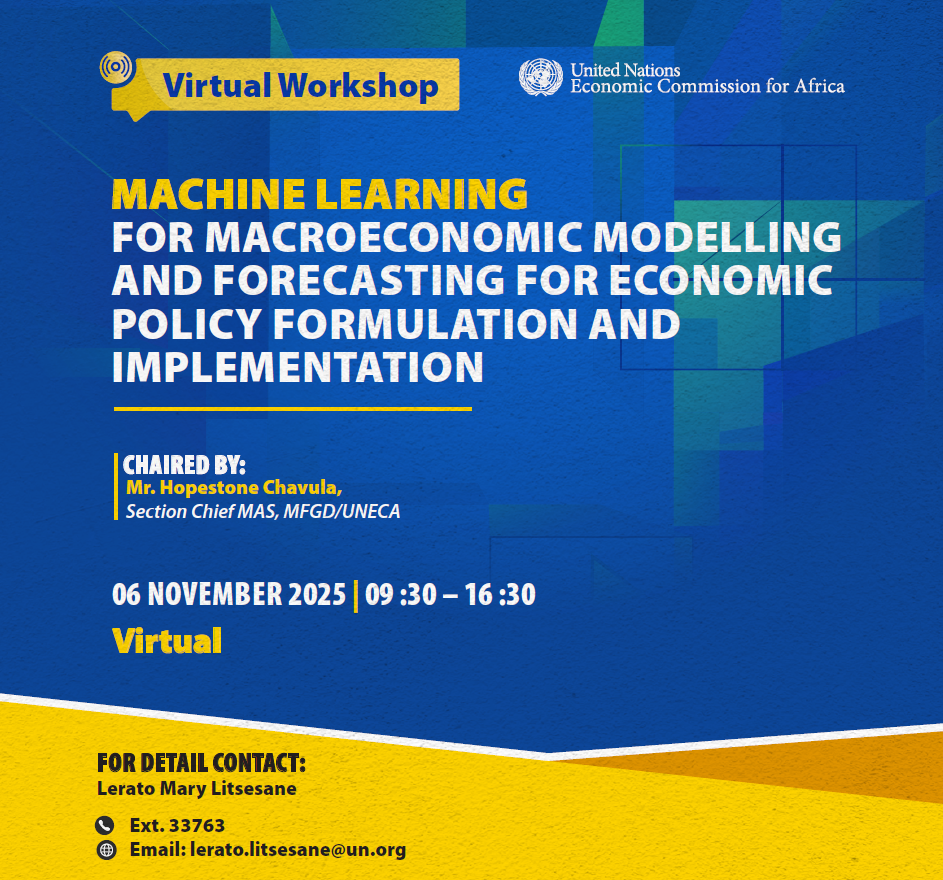
Analytical frameworks for macroeconomic policy management are very critical for African countries. Governments use monetary and fiscal policies to achieve key economic goals such as sustainable economic growth, price stability and a stable balance of payments including the achievement of the Sustainable Development Goals (SDGs) and AU’s Agenda 2063. By illustrating the intricate relationships between various macroeconomic variables, macroeconomic modeling offers tools for comprehending, forecasting and simulating the effects of economic policies and shocks on the accomplishment of the SDGs. Thus, African policy makers have to able to build and maintain economic models and provide model-based analyses. Macroeconomic modelling has to adapt to the evolving technological landscape, the changing demands in dealing with economic challenges where models play a key role in addressing them, as well as the quality and reliability of the associated estimates and forecasts being produced and used.
